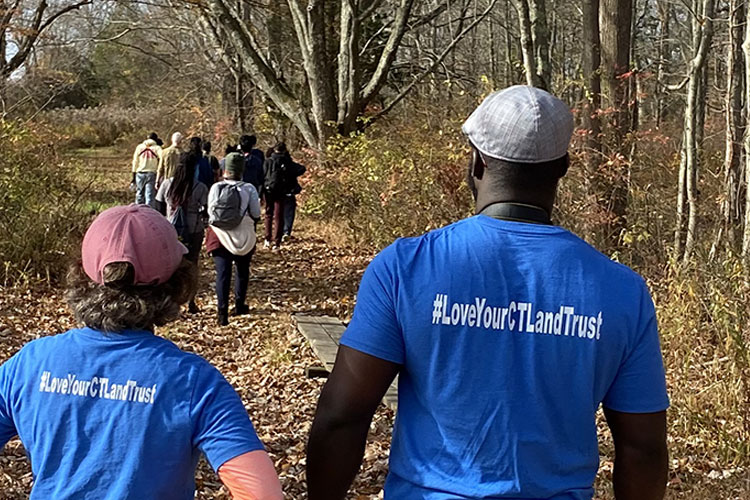The Land Trust Alliance has made available the Framework and Resources for Change, a tool to help land trusts organize learning and grow critical Diversity, Equity and Inclusion competencies, no matter where they are in their learning journey. Thanks to generous funding of an anonymous foundation and other individual donations, the Alliance hosted a webinar “Making the Most of the DEI Framework & Resources for Change” to introduce this tool and help land trust board members, staff and volunteers get started on their DEI journeys.
The Connecticut Department of Energy and Environmental Protection (CT DEEP) is dedicated to environmental justice. The CT DEEP Environmental Justice Program integrates environmental justice principles into its activities. It evaluates its urban initiatives, addresses issues in underprivileged communities, bolsters public decision-making involvement, identifies health concerns with health departments, improves administrative participation, educates on regulations and policies, and reduces language barriers.
Incorporating environmental justice into land conservation means focusing on directing resources to historically underserved communities, using natural systems to lower greenhouse gases and guard against climate change effects. Conservation efforts aim to cool communities during heat waves, reduce air pollution, protect from floods, and foster economic growth, all while addressing the disproportionate impact of climate change on low-income and minority populations.
Inclusive access to nature is vital, ensuring everyone can connect with the outdoors. Resources provided offer guidance on adaptive birding, ADA compliance, and community inclusion strategies, aiming to break barriers and foster equitable enjoyment of natural spaces for people of all abilities. These insights empower organizations to create universally welcoming outdoor experiences.
Diversifying organizations through their boards, staff, and committees is essential for reflecting community diversity and enhancing decision-making. The resources provide insights on inclusive environmental action, outline change processes for racial equity, offer roadmaps to inclusivity, guide on hiring diversely, and discuss barriers to organizational change. These tools help create environments where diverse perspectives are valued and drive forward the mission of land conservation inclusively.

